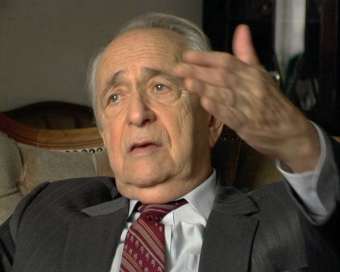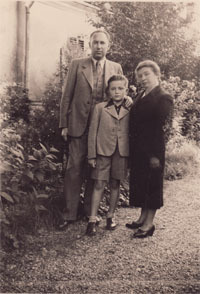Miroslav Ribner (*1929)

© Fritz Bauer Institute

© Miroslav Ribner
Miroslav Ribner, the second child of Jelena (née Cigler) and Aleksandar Ribner, was born in Čakovec (now in Croatia) in 1929. His older sister died in 1930. His father, Aleksandar, worked in a bank, and his mother, Jelena, was employed as a stenotypist in a law office. The Ribners spoke Croatian at home, and the parents also spoke Hungarian and German. The family was not very religious, and the Ribners went to synagogue only on the Jewish High Holy Days.
After the outbreak of war, Čakovec was occupied by Hungary. At the time, Miroslav was in his first year of high school, and he and his classmates had to try to follow classes that from then on were conducted in Hungarian. Until the spring of 1944, the family's life remained relatively unaffected. In April 1944, however, the father, mother, and son first were placed in a transit camp in the Hungarian town of Nagykanizsa and then deported from there to Auschwitz. Jelena Ribner was sent directly to the gas chamber, while Aleksandar and Miroslav were put in the Buna/Monowitz concentration camp, where they had to perform forced labor for I.G. Farben. Father and son were housed in the same barracks in the camp. Miroslav worked in the mechanics’ detachment. In January 1945, still together, they were forced to take part in the death march. Miroslav’s father, Aleksandar Ribner, did not survive the march. After various stops along the way, Miroslav finally was transported to Buchenwald, where he was liberated. Then he returned to Yugoslavia.
Miroslav Ribner carved out a military career in Communist Yugoslavia. In the Serbian town of Sombor, he met his future wife, Marica. In the military diplomatic service, the couple spent a number of years at several of Yugoslavia’s diplomatic missions, including posts in Budapest and London.
Today the Ribners live in Belgrade. Miroslav Ribner is active in the Jewish community. He is president of the Commission of Holocaust Survivors in Serbia.
(GB; transl. KL)
Miroslav Ribner, oral history interview
(Serbo-Croatian, with German subtitles)
















